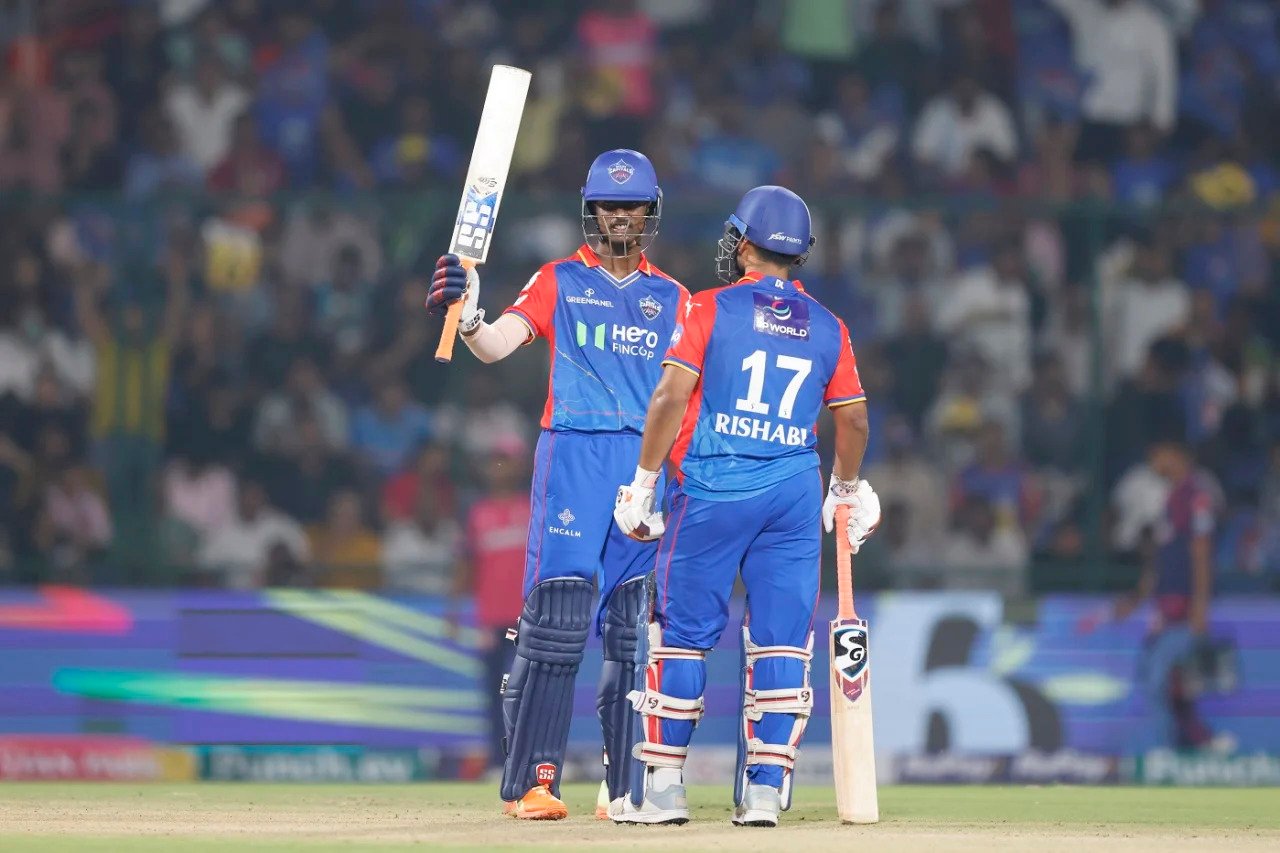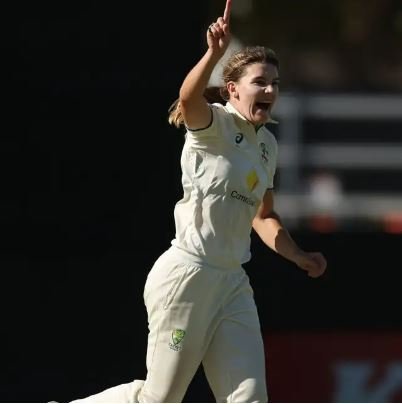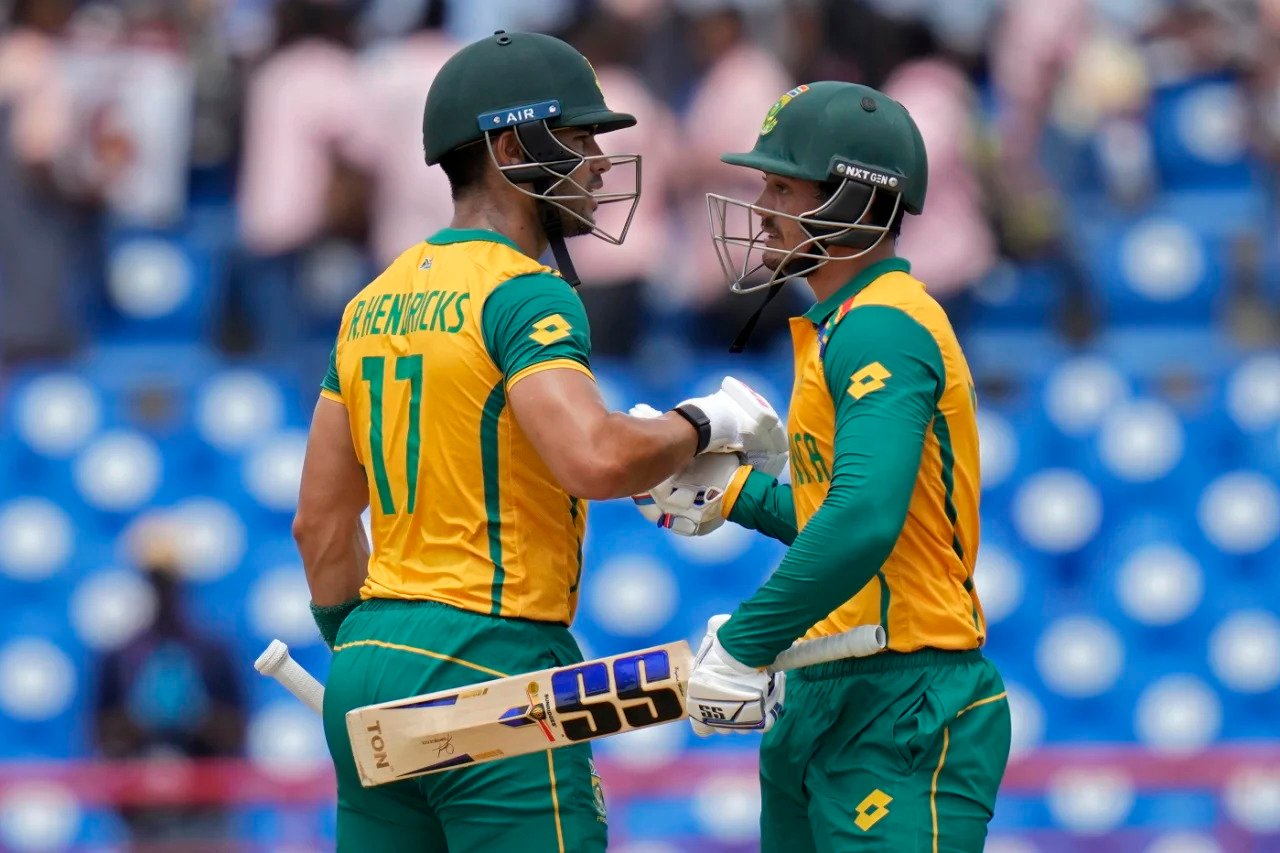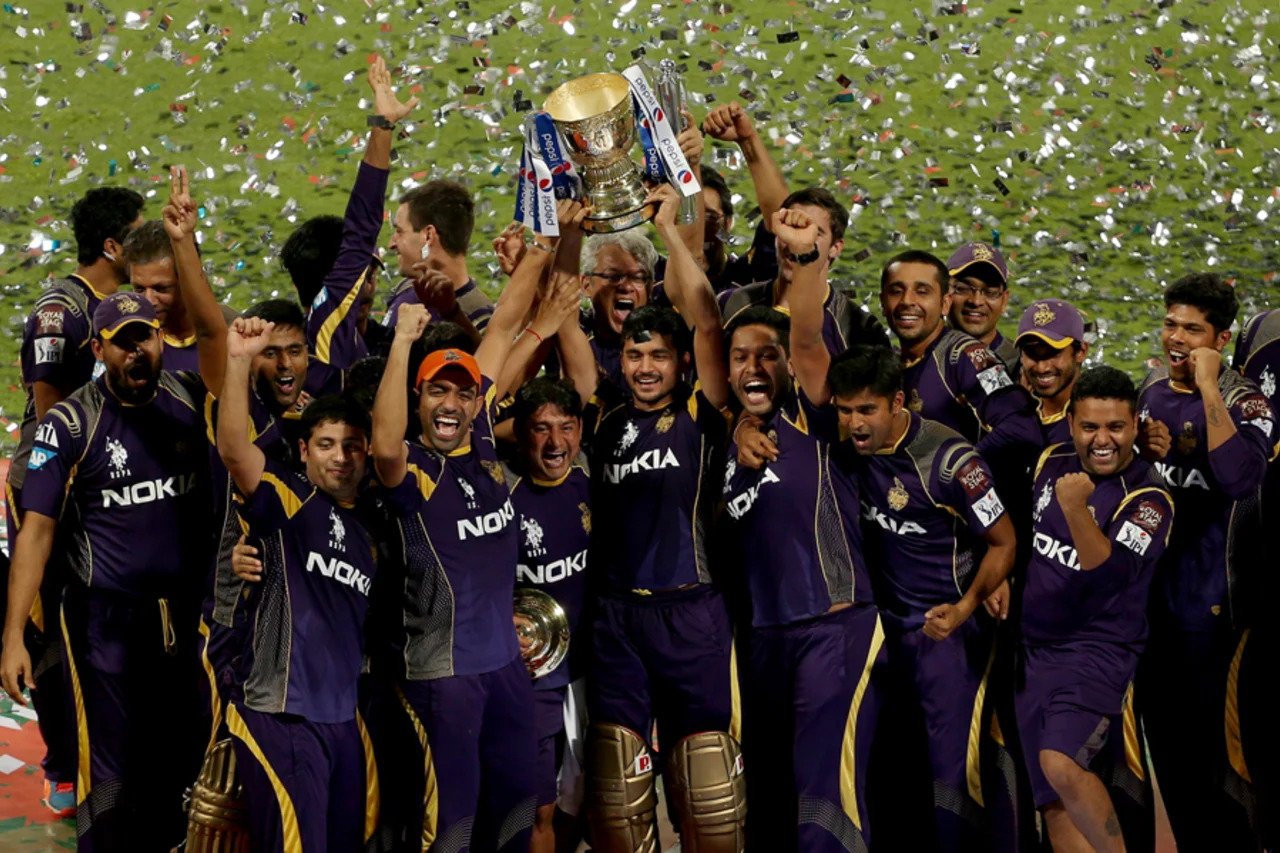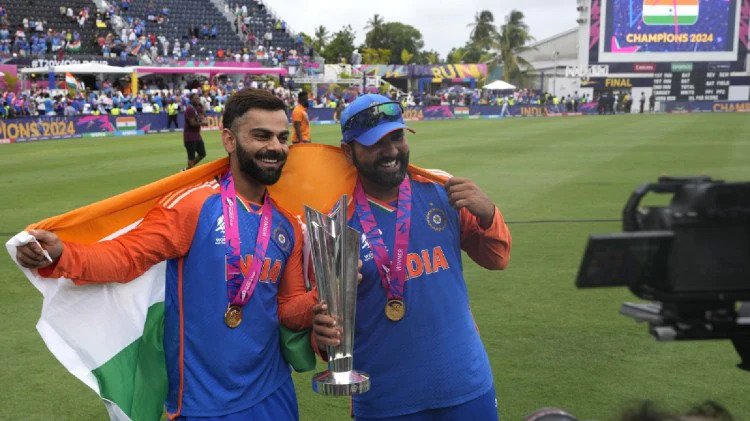India defeated South Africa by seven runs in a thrilling Twenty20 World Cup final, thanks to outstanding performances from Jasprit Bumrah and Hardik Pandya.
With six wickets remaining, South Africa needed to score 30 runs off 30 balls, but India’s bowlers dramatically changed the tide.

India 176 for 7 (Kohli 76, Axar 47, Maharaj 2-23, Nortje 2-26) defeated South Africa 169 for 8 (Klaasen 52, Bumrah 2-18, Arshdeep 2-20, Hardik 3-20) by 7 runs to lift the ICC T20 World Cup 2024.
India pulled off one of their greatest heists to finally win a World Cup, as Suryakumar Yadav stole a boundary catch for the ages, Jasprit Bumrah snuck in two electrifying final overs, and Hardik Pandya pilfered the two vital wickets.
Five overs remained, and South Africa was dominating. With a barrage of sixes, one of the greatest hitters in history, Heinrich Klaasen, may end decades of agonizing big-match history for his team. With six wickets remaining, South Africa just needed to score one run every ball over the final 30 balls after he and David Miller had combined for 38 runs in the previous two overs.
Rather than saving Bumrah for later overs, Rohit Sharma was compelled to use the world’s best bowler. The hitters never dared to take on Bumrah, thus the alliance wasn’t entirely broken. He did, however, shorten Miller’s and Klaasen’s stride. Only four runs were scrambled off that over by them.
However, the turning point arrived at the onset of the 17th over. Following a further slowdown in the game as a result of Rishabh Pant’s apparent knee issue, Hardik bowled a wide line outside off and took Klaasen’s edge, with Pant happily seizing the opportunity.
Miller was there, although he was unable to secure a boundary off the last over.
After that, Bumrah returned and, in the final over of yet another competition that he had dominated, bowled several ripsnorters. Marco Jansen, the final recognized batter from South Africa, was caught off guard when he was hit by one of those miracle balls, a devastating in-seamer, which skimmed leg stump.
For the first time since the early overs of the chase, South Africa were in difficulty with Keshav Maharaj occupying the middle position and their batting line-up noticeably short with 20 needed off 12 balls. In the 19th over, Arshdeep Singh bowled with such nervelessness that South Africa could produce only four runs.
Then came the blow that killed dreams. 16 runs were required off the last over, which Hardik bowled. Miller attempted to lift the first ball over the straight boundary with a wide full toss. However, his strike was not perfect, and Suryakumar, with his feet barely centimeters inside the rope, ran full tilt along it, caught the ball, popped it up as he briefly stepped over the boundary, and then completed the running catch as he hopped back into the field, igniting wild celebrations from the India players and spectators alike.
All of the South African batters, except for one outside edge that went for four, were unable to get Hardik out of the game.
The bowler went to his knees in relief, his teammates celebrated, and the mostly Indian crowd went wild as Hardik India sealed the seven-run victory. After thirteen years, their squad had won the world championship once more.
Also Read: India vs Pakistan: Thrilling ICC World Twenty20 World Cup Final 2007 Recap
Bumrah took two wickets in Barbados on a level pitch with two unplayable deliveries that he bowled. The superior one was the first one. It was undoubtedly among the best ever in the finals and among the best of the entire competition. Pitching with an angle toward Reeza Hendricks, it seamed away to beat the batter’s outside edge and hit the top of off.
He let up five runs in the opening over and eight in the following one (he bowled only two boundaries, one of which was a poorly timed steer through deep third). However, the final two overs helped to define this match to some extent. After the 15th over was bashed for 24 runs, four runs were scored off the 16th over. Off the 17th by two runs. His results were 2 out of 18.

Arshdeep Singh, who went 2 for 20, was nearly as good. In just two powerplay overs, he cost just eight, and he got Aiden Markram, who edged him behind, for a crucial wicket. He had managed the recovery from two early hits and removed Quinton de Kock, who was trying to pick up the pace, in the middle overs.
And then there was that incredible 19th over, where he kept Maharaj on strike while bowling Miller two balls and giving up only three runs off them. This comes after the spinners from India had conceded 106 runs in their last nine overs.
One of the tournament’s top hits came from Klaasen, who barely moved his feet to slam a wide, Kuldeep Yadav googly well over the cover boundary for six. After hitting Hardik and Ravindra Jadeja over the rope earlier, that was his third six.
However, it was against Axar Patel that he truly put South Africa on top. He blasted a four off the back foot after he was hit with the first ball of the fifteenth over. Terrified, Axar bowled two wides. Subsequently, there were two enormous hits on the ground, one of which struck the stadium’s roof and the other, just for good measure, a four-through wide long-off.
He reached his fifty in the fastest time ever in a T20 World Cup final, reaching it in 23 balls. Following his dismissal, South Africa was only able to muster four intentional boundaries, all of which came off of Kagiso Rabada’s outside edge. Although Virat Kohli’s 76 off 59 will make headlines, there were moments when this knock felt forced.
Kohli faced 35 balls between the fourth and the eighteenth over, scoring 29 runs without hitting a boundary. Having batted for the majority of that time in ODI middle-overs mode, he had used up 48 deliveries when he reached fifty and did not lift his bat. There was an obvious criticism to be made here: was India suffering as a result of this incredibly unambitious innings?
But there is a compelling counterargument. When Suryakumar Yadav, the third wicket, fell in the fifth over, Kohli was 22 off 16. Additionally, the security he provided at one end made it possible for Shivam Dube and Axar (who raised order No. 5) to succeed with their hard-hitting.
He scored 72 off 54 (Axar hit 47 off 31) and 57 off 33 (Dube hit 22 off 13) during his stands with those batsmen, which contributed significantly to India’s innings. Their World Cup final score of 176 for 7 was the most ever scored by any team.
You could not have possibly come to that conclusion for 35 overs in this game. They were energized in the opening overs when India’s most threatening batsman, Suryakumar, was dismissed by Rabada and Keshav Maharaj scored thrice. They were outstanding in the outfield and held their catches.
They also handled losing early wickets well. However, at one stage they were short of six wickets, needing 26 off 24 balls, and had just one more over of Bumrah to go. They lost both of their important hitters to Hardik despite their attempt to target him, which was the appropriate move in that scenario.
Simpler explanations also exist: India had a strong and experienced squad, but South Africa’s batting lineup lacked depth.
Rohit Sharma: “My Greatest Achievement, I Wanted It Badly”
The captain of India’s cricket team, Rohit Sharma, said that winning the T20 World Cup was his proudest professional accomplishment. This was due to his strong desire to win a world championship. Rohit conveyed his joy and happiness at having given the departing coach Rahul Dravid a significant trophy.

Rohit Sharma remarked, “It has to be the greatest time,” at the news conference following the game. “I was so hoping to win this. I value every run I’ve made throughout the years, but what I value most is winning games and trophies for India.”
After the victory, Rohit reflected on his feelings, saying, “I really wanted this. For me, it was a moving moment. That happy, relieved moment when we crossed the line will always be in my memory.”
At the press conference, Rohit Sharma carried the trophy, highlighting the important part that coach Rahul Dravid had performed. “More than any one of us, I think he deserved this trophy,” Rohit stated. “He has made a huge impact on Indian cricket over the last twenty to twenty-five years. I’m glad we could take care of him in this way. You could see his excitement and pride.”
Over the previous three years, Dravid has played a pivotal role in the team’s development. He has responded to the needs of the players by defining their roles and maintaining communication with those who are not on the team. “Rahul bhai has always prioritized the team’s needs, working hard to understand and support the players,” Rohit said.
Even though Rohit insisted on batting first, he disclosed that there had been some disagreement among the team’s brain trust prior to the final. “In important games, I think it’s important to have runs on the board. I made it very evident that we had to score runs and then hold onto them,” he said. “Even if the result hadn’t gone in our favor, I would have still backed the decision to bat first.”
Throughout the game, the pitch performed admirably, and Rohit recognized this. His plan was successful as India scored a respectable total and held it.
Jasprit Bumrah, the Player of the Tournament, received extra recognition. “Whenever he has the ball in his hand, he tends to create magic for us every time,” Rohit stated. “I am very lucky to have players like him in my squad, and I am grateful for their contributions.”
The team’s combined efforts under Rohit Sharma‘s direction resulted in a historic T20 World Cup victory. India’s triumph was largely due to his persistent commitment and the strategic skill of the coaching team, particularly Rahul Dravid.

